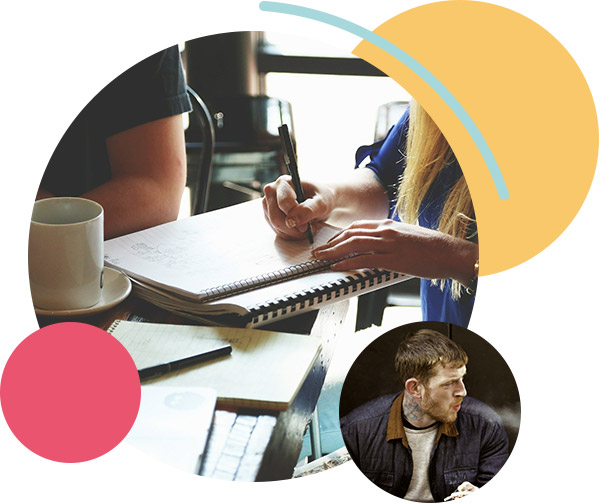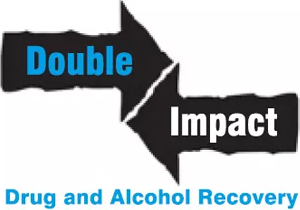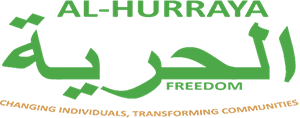
The Nottingham Recovery Network Triage Team is the first point of contact for clients wishing to access support.
The team completes a detailed assessment with each client, before discussing the most suitable support options and agreeing next steps. They also work with other agencies and partners to ensure as much support as possible is in place.
They work on a ‘drop-in’ basis and no appointment is needed for an assessment. Anyone wishing to access the team can visit Nottingham Wellbeing Hub (on Houndsgate). View our location.
Main opening hours
In-person at Nottingham Wellbeing Hub:
Monday: 9.30am – 4.00pm
Tuesday: 9.30am – 4.00pm
Wednesday: 9.30am – 6.00pm
Thursday: 9.30am – 4.00pm
Friday: 9.30am – 4.00pm
Saturday: 9.30am – 1pm (last assessment at midday)
Phone support on 0800 066 5362 is available:
Monday, Tuesday, Thursday and Friday: 8am – 6pm
Wednesday: 8am – 7pm
Saturday: 9.30am – midday
The Primary Care Team offers short-term psychosocial interventions and reduction planning using evidence-based therapies. They work with patients to change their relationship with drugs and/or alcohol.
They run several clinics around Nottingham City including at locations in Clifton, Bulwell and Cripps.
They also work with other professionals to provide advice and guidance, offering IBA (Identification and Brief Advice) Training to increase staff confidence when discussing substance use with clients.
They are active in the community, regularly attending wellbeing days, events and health promotion meetings. Increasing awareness and education with the public and other professionals is an important part of their community involvement work, along with offering information and advice to support the residents of Nottingham City.
Contact the Primary Care Team.
The PSI Team offers support to all Nottingham Recovery Network clients via a wide range of groups. These can be both structured and/or peer-based and build upon recovery treatment, helping clients to learn and practice new skills, and find ways of managing life without the need to use substances in an unhealthy way (this does not necessarily mean abstinence) including:
- Making changes to everyday routines
- Relapse prevention
- Emotional resilience
- Acceptance and Commitment Training
- Peer support sessions (mixed, gender and cultural specific)
- Arts and crafts
- Creative writing
- Acupuncture
- SMART UK Group (mutual aid).
In addition to this, the PSI Team can work on a one-to-one basis with clients who have already completed harm reduction work, made changes to their substance use and are looking to maintain these changes or progress a little further in their journey using evidence-based interventions such as:
- Reducing substance use strategies
- Setting achievable and realistic goals
- Understanding triggers and cravings and how these can be managed
- The stages of the relapse process
- Ways of managing high-risk situations
- Building support networks
- Managing emotions and building emotional resilience
- Introducing mutual aid
- Building routine and meaningful activities
- Connecting with others
- Managing impulsive behaviour (the pause button)
- Mindfulness techniques
- Breathing techniques
- Designing an effective Relapse Prevention Plan.
Psychosocial Interventions Team (PSI Team)
For one-to-one support contact the Nottingham Recovery Network Triage Team on 0800 066 5362.
Group work
You need to be supported by Nottingham Recovery Network to access group support. You can speak to your Key Worker who can make a referral on your behalf.
Support is available 9am – 5pm Monday to Friday and 9am – 1pm on a Saturday.
RSDATT aims to combat challenges faced by people experiencing homelessness in Nottingham City, including unhealthy substance use and severe and multiple disadvantages (which involves a combination of homelessness, mental ill health, substance use, sexual or domestic violence and offending).
They are a proactive service that removes barriers to treatment for those living on the streets, sofa surfing, in unsuitable housing or hostels, or at imminent risk of homelessness.
The team is made up of around twenty Key Workers who have a wealth of experience in drug and alcohol treatment, housing, social care and psychology.
They offer clinical treatments but understand that the needs of clients often include more than addressing substance use issues. They collaborate closely with other services and agencies, helping clients to refer into housing, physical and mental health treatment pathways.
How to access support from RSDATT
If you are a professional you can refer your clients directly to RSDATT.
If you would like to make a self referral, you can:
- Call Nottingham Recovery Network on 0800 066 5362 (we can arrange a home assessment with you if necessary)
- Attend The Wellbeing Hub on Houndsgate in Nottingham City Centre, and ask at reception for an assessment. View our location and opening hours.
What happens after an assessment?
An assessment takes about 30 minutes. If our service is suitable for you, we can usually begin treatment within a couple of days. A personal treatment plan will be created for you.
The Health Shop provides sexual health services for people who:
- Face barriers accessing mainstream services
- Are experiencing health inequalities
- Are disproportionally affected
- Or need greater flexibility than traditional services can offer.
The service works with anyone aged 13 years and over. There is no upper age limit.
Sexual health products (condoms, lube, dental dams and gloves) can be collected from the service on Broad Street or via outreach locations including LGBTQI+ venues.
The team can also provide sexual health testing and treatment. They also offer harm reduction advice and a needle exchange service.
Find out more about The Health Shop. You can call the team on 0115 905 5001 or 07585 991542.
The New Path to Employment Team help NRN clients who are currently in treatment and recovery from unhealthy substance use to find employment. They match employers to individuals, provide employability training and help people to overcome challenges when in work.
To access the service, people need to be:
- 18 years and over
- Motivated to start work
- Looking for a new challenge
- Lacking confidence
- Wanting to start a new career path
- Seeking an employer who will support them in their recovery.
Support includes:
- One-to-one career support
- An introduction to employers
- CV and interview skills support
- An ongoing support network (with a Key Worker in place to ensure recovery is sustained)
- Benefits advice (to ensure financial stability)
- Positive support focusing on a person’s strengths
- Goal planning
- Job application training
- Time unlimited support which can continue when a person is in employment.
Find out more about New Path to Employment.
Referrals
Individuals should speak to their Key Worker/Support Worker if they feel ready to find employment. The team can be contacted using the email address below.
Contact
newpathtoemployment@frameworkha.org
The Academy aims to support individual and collective recovery through learning, training, mentoring and volunteering in a welcoming and supportive environment. It is a recovery community where everyone feels like they belong, and also a safe space for people in recovery to connect with others who have lived through similar experiences.
The Academy Team develop personalised plans depending on individual learning needs and aspirations and work collaboratively with clients, aiming to create a positive recovery environment for all.
They can also provide space for people to address their substance use and offending behaviour, and reduce reoffending through connecting with others in recovery.
Find out more about The Academy.
RCMAT provide alcohol treatment for Nottingham City residents whose primary substance use is alcohol. People supported by the service will have a dependency to alcohol as defined by the Severity of Alcohol Dependency Questionnaire (SAD-Q) or a high level of alcohol use which is having a negative impact on their health and wellbeing.
Anyone accessing the service is supported by a dedicated Key Worker who will develop a Plan of Care based on each person’s goals. These could include abstinence or controlled drinking – and will always be at a pace the individual feels comfortable with.
The service has various treatment options depending on a person’s needs, which could include harm reduction advice and guidance, a gradual Alcohol Reduction Plan, community detoxification or inpatient detoxification. Access to long term rehabilitation can also be arranged, along with referrals to other groups that may be helpful.
Relapse prevention medication can be prescribed once a person is abstinent, with assessments made by either a Non-Medical Prescriber or GP working RCMAT.
Access to a Fibro-scan at can also be discussed with a Key Worker.
RCMAT can also offer signposting or referral to other services such as debt advice, mental health support, housing support, smoking cessation, help with gambling and support for domestic violence.
The Recovery Case Management Alcohol Team are based at the Nottingham Wellbeing Hub. View location and opening hours.
The Community Outreach Alcohol Treatment Team (COATT) are part of the Recovery Case Management Alcohol Team (RCMAT). See section above for information.
This part of the team provides alcohol treatment in the community for people who are unable to attend the Nottingham Wellbeing Hub.
This could be due to mobility problems, poor physical health (making travel difficult) and mental health challenges.
COATT provide the same service and support for people as RCMAT. However, the support takes place in the person’s home and reduces the barrier of appointments and attendance in-person for people who do not feel ready or able to do this.
The Recovery Case Management (Drugs) Team provides tailored, ongoing assessment and support of the prescribing and psychosocial needs of people facing dependent drug use.
The team works with people who face daily dependency with their drug use, which could include heroin, crack cocaine, amphetamine or over-the-counter (OTC) medications.
If appropriate, prescribing options will be discussed, and the Medical Team or a Non-Medical Prescriber will agree a prescribing approach, together with the person’s Key Worker.
Some of the medications prescribed by the team are Methadone and Buprenorphine (Subutex), which are specifically for Opioid dependency.
The team also supports stabilisation, detoxification and relapse prevention. If medications are prescribed, they are collected from a local pharmacy. Initially the team might supervise the use of medications on a daily basis to support stability and the reduce risk of overdose.
In order for medications to be prescribed, the team must have consent to share information with GP’s. Naloxone (an Opioid reversal medication which in many cases is life-saving) is offered to everyone engaged with the team (as well as the people that they live or spend time with should they need to use it). Training is also provided on how to use Naloxone safely.
Each person supported by the team will have a dedicated Key Worker and a Recovery Care Plan, which will look at many aspects of the individual’s life, not only drug use, in order to develop a strong foundation for recovery.
Consideration is given to physical and mental wellbeing as well as wider social, psychological and economic factors. Regular recovery check-ups are put in place, and signposting to, and liaison with, other services is provided where appropriate.
Consent is needed in order for the team to liaise with GP’s and any other services where relevant. Information is treated as confidential in all cases, unless there any safeguarding concerns. These concerns could include domestic violence, child safeguarding, vulnerably housed and associated risks, disabilities and being a risk to others. All sharing of information is discussed with the individual initially, unless it might pose a risk to others.
Where more intensive support is needed, the team has a very close working relationship with the Local Authority and a clear pathway to maximise opportunities for residential rehabilitation.
The Recovery Case Management (Drugs) Team are professionals from various backgrounds, including Nurses, Social Workers, Clinical Specialists, and a Medical Team. They pride themselves on working in a person-centred way, and in collaboration with each individual. The team attends ongoing training to support their practice, as well as having a robust supervision process that focuses on patient care.
Clean Slate is a Criminal Justice substance misuse service.
It takes a recovery-focused approach and aims to reduce reoffending through engagement and treatment for alcohol and drug users.
The team work with Clients to:
- Manage their alcohol and drug use
- Coordinate the management of their offending with appropriate agencies
- Help them to meet their alcohol specified activity and rehabilitation activity requirements
- Signpost them to appropriate alcohol and drugs psychosocial group programmes
- Ensure they are aware of the alcohol and drug treatment requirements (ATR’s and DRR’s)
- Offer brief interventions and treatments
- Prevent relapse
- Sustain long-term recovery.
They also offer the following to aid Clients in their recovery:
- On-site GP support
- Specialist prescribing clinics
- Blood borne virus testing, vaccinations and referral to appropriate treatments
- General health and wellbeing clinics
- Partnership working with Health and Social Care partners (including Pharmacies)
- Continuity of alcohol and drug treatment between community and prisons.
The team engages and motivates clients by:
- Offering assessment, advice and recovery-focused treatments
- Providing end-to-end alcohol and drug interventions across custody services, courts, prisons, statutory orders, licences and non-statutory status
- Delivering and managing alcohol and drug treatment with pharmacological interventions
- Holding one-to-one sessions with clients
- Undertaking brief and structured psychological interventions
- Offering drug testing.
To access support from Clean Slate a referral needs to be made by a Probation Officer.
The Clean Slate Team are located at the Nottingham Wellbeing Hub. They can be contacted week days between 9.30am and 4.30pm on 0115 844 1841.
This service can help anybody who wants to change their relationship with drugs and/or alcohol. The Team is based at Nottingham University Hospitals.
Find out more about the service.





